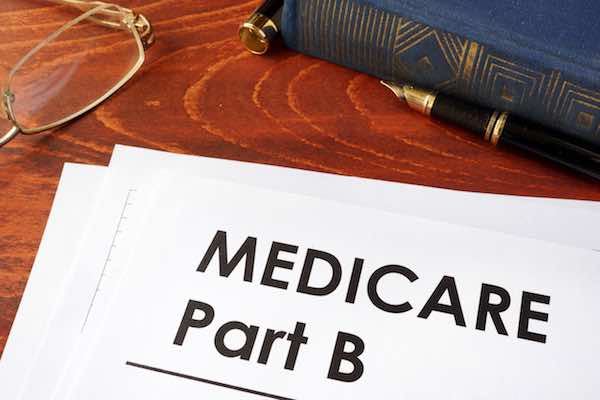When Federal retirees hit age 65, they are faced with the question of whether to sign up for Medicare Part B in addition to continuing their coverage in the Federal Employee Health Benefits (FEHB) Program.
In 2018, a number of FEHB plans, including Aetna Direct and BlueCross Blue Shield, are offering plans that include at least partial premium reimbursement for retirees who are enrolled in Medicare Part B.
Medicare Part B is not mandatory, but highly encouraged. On the other hand, for enrollees, signing up for Medicare Part B means taking on an additional monthly cost beyond their FEHB premium.
In 2017 the Medicare Part B premium for most newly enrolled Federal retirees was $134 per month, although it could range between $187.50 to as high as $428.60 for high-income retirees who are subject to the Income Related Monthly Adjustment Amount (IRMAA).
This cost, in addition to their FEHB monthly premiums, discouraged some retirees from signing up for Medicare.
Insurance plans, on the other hand, benefit from retirees enrolling in Medicare Part B coverage, as Medicare then becomes the primary payer and the FEHB plan becomes the secondary payer, decreasing the companies’ costs to insure Medicare-covered enrollees.
An expanding list of plans offering at least partial premium reimbursement
In 2018, a number of FEHB plans are offering at least partial reimbursement for Medicare Part B premiums to offset part of the cost of enrolling in Medicare Part B.
Most, but not all, of the plans are High Deductible Health Plans (HDHP), which have higher annual deductibles and out-of-pocket maximum limits than other types of FEHB Program plans. These plans offer a Health Reimbursement Arrangement (HRA) that reimburse Medicare premiums and other allowable medical expenses using HRA funds.
But for those not interested in HDHP, both Aetna Direct and BlueCross Blue Shield PPO – Basic Option – are also offering partial premium reimbursement in 2018. This is a new offering by BlueCross Blue Shield, although not for Aetna Direct.
The National Association of Postal Supervisors (NAPS) have provided a list of FEHB plans offering Medicare premium reimbursements.
FEHB Plans Offering Reimbursement
Here is the list of FEHB plans offering at least partial Medicare Part B premium reimbursement in 2018:
- Aetna Direct, members can request reimbursement for Medicare premiums that will be reduced from the medical fund amount.
- BlueCross Blue Shield PPO – Basic Option – Limited HRA is provided to any member enrolled in Medicare Part A and Part B; reimbursement is to be used exclusively to pay Medicare Part B premiums – $600 annually. (New )
- Aetna HealthFund HDHP – reimburse Medicare premiums using HRA funds.
- Aetna Health of Utah HDHP – reimburse Medicare premiums using HRA funds.
- CareFirst HDHP – reimburse Medicare premiums using HRA funds.
- GEHA HDHP – reimburse Medicare premiums using HRA funds.
- Independent Health HDHP – reimburse Medicare premiums using HRA funds.
- Kaiser Northern California, High Option – Limited HRA reimbursement up to $125 of Medicare Part B monthly premium.
- Kaiser Northwest – High Option – reimburse Medicare B premiums up to $125 per month.
- Kaiser Health Plan of Washington HDHP – reimburse Medicare premiums using HRA funds.
- MHBP Consumer Option – reimburse Medicare premiums using HRA funds.
- TakeCare HDHP – reimburse Medicare premiums using HRA funds.
- United Healthcare Insurance Choice Plus HDHP – reimburse Medicare premiums using HRA funds.
Partial reimbursement may not cover the full cost of Part B premiums in 2018, but it is a help.
It will also help cover the additional costs of those Federal retirees who chose not to sign up for Medicare Part B when they were first eligible, but have changed their mind and now face a late enrollment penalty of 10% for each full 12-month period that they could have had Part B, but didn’t sign up for it.
With FEHB open season beginning November 13, retirees should at least consider whether signing up for a plan that offers some sort of premium reimbursement makes sense in their situation.



